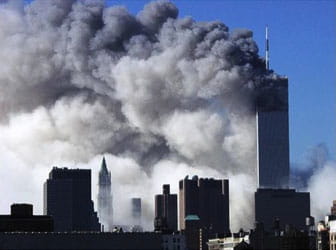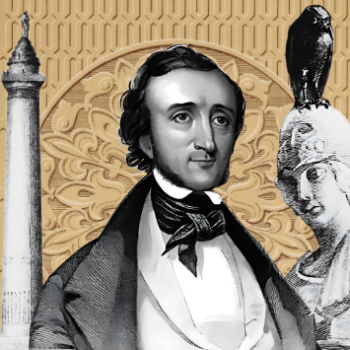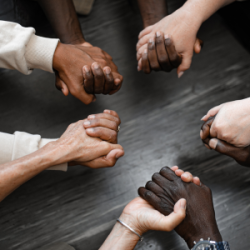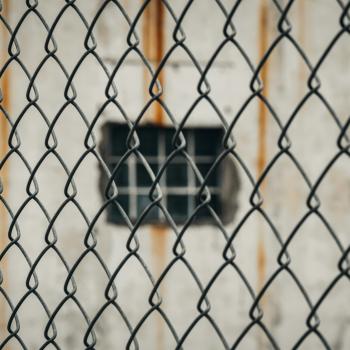 Like most other pastors in America, I don't have a way of avoiding 9/11 Sunday. Just as Americans will never forget where they were when the first plane hit the tower, many American Christians know where they will be on the ten-year anniversary of that day: in church.
Like most other pastors in America, I don't have a way of avoiding 9/11 Sunday. Just as Americans will never forget where they were when the first plane hit the tower, many American Christians know where they will be on the ten-year anniversary of that day: in church.
What should we who run churches do about it? Should we pay tribute to the brave military men and women who serve America (especially in a military town like mine)? Should we create a video montage of the horrifying images and display them in a moment of silence? Or should we summon up familiar words about forgiveness and peace? A swell of media voices tells us to "never forget," to "always remember." But what does it mean for a Christian to remember an act of violation well?
To begin with, we must tell the truth. Justice requires that we name things as they are. We cannot simply put a veneer of tolerance over the rough timber of terrorism. The terrorists behind the attack acted as our enemy, and their acts were nothing short of evil.
Yet Jesus calls us to do more than name our enemies; He calls us to love them.
There is a way of "remembering" that is un-loving toward our enemies. If we only remember our courage or our virtue—though there are many stories of American courage and virtue since 9/11—we are not yet remembering well. If we only remember our enemy's evil, or the horror that we felt because of their acts, we are not yet remembering well. To only remember our virtue and their evil is to glorify our pain, idolize our nation, and reinforce our prejudice toward our enemy. All of that is what a Christian must call sin, and it is far from loving our enemies.
If we are to remember well, we must tell the truth about ourselves. We must remember that we, too, are sinners, that all of us—our enemies and us—are those for whom Christ died. Neither of us is excluded.
Miroslav Volf, a Yale theologian and a respected Christian voice with his own painful memories of civil war in Yugoslavia, calls us to "remember" a violation from at least three angles:
1. We remember that our enemies are not excluded from the community of humans to whom God has extended forgiveness though Christ's death;
2. We remember that we are not excluded from the community of sinners in need of God's forgiveness; and,
3. We remember our pain within the Story of Christ's death and resurrection.
By placing our memory of pain and violation within the larger, sacred memory of Christ's death and resurrection, our memory becomes Eucharistic. We are not simply remembering our pain; we are remembering Christ. Refusing to make our pain or pride or prejudice the Lord of our lives, we choose instead to surrender to Christ, to see the world through His death and resurrection.
So. Here's what I'm planning on doing this Sunday at the evening service that I lead:
When we bow our heads to silently confess our sins in preparation for the celebration of the Lord's Supper, we will confess the hatred and prejudice and violence in our own hearts.
Then, we will come to the table of the Lord to remember Christ. We will not simply remember America's national tragedy. We will remember the Greatest Tragedy of all: that the Son of God was crucified. We will remember that before the cross we kneel as sinners, as those who once were God's enemies. And we will remember that our enemies are also those for whom Christ died.
We will remember that God raised Christ from the dead, triumphing over Evil and ending the cycle of death and revenge. In the cross we know we are forgiven; in the resurrection we know that restoration has begun. We will proclaim that Christ will come again in glory to judge the living and the dead, and trust that because justice is in His perfect hands, it does not need to be taken into ours.
As we take the bread and the cup and pray with those around us, we will pray for God's mercy over those who lost a father, a mother, a son, or a daughter on that dark day. We will pray that God will comfort the grieving. We will pray for the Church to shine Christ's light where hatred and violence reign. But we will also pray for those we have named as our enemies. We will pray that they will find mercy, that they may receive the forgiveness God has offered them in Christ. We will join hands and pray the prayer that Jesus taught us, saying carefully the plea that God will forgive us our sins as we forgive those who have sinned against us.
May God give us the grace this Sunday to not rally around a flag, but to raise the cross of Christ—a cross that speaks of forgiveness instead of retaliation, of mercy triumphing over judgment. May we not simply remember well; may we also remember Christ.
9/9/2011 4:00:00 AM




